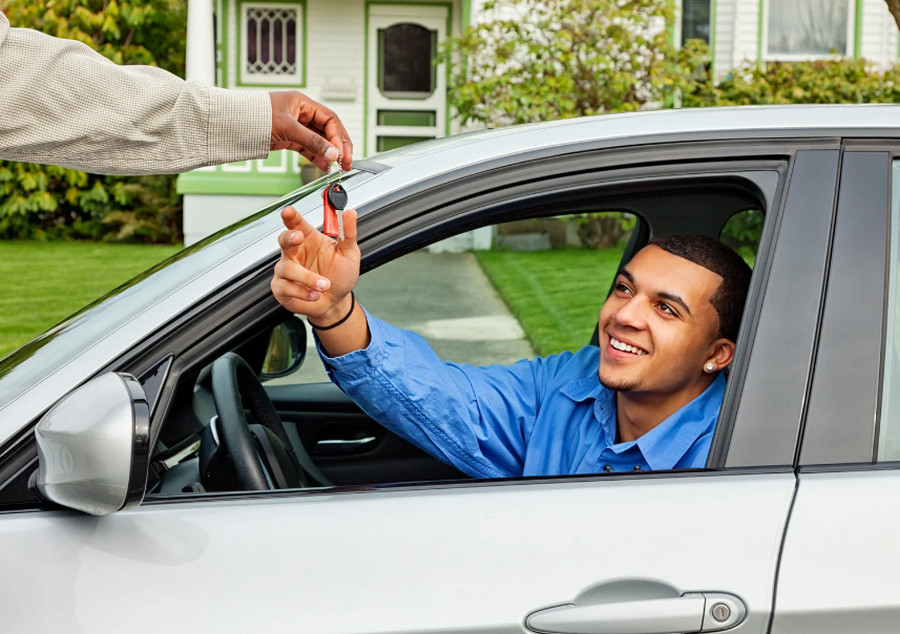Hi there. Let’s say your neighbor borrows your car for the weekend, or you’re driving your cousin’s vehicle while yours is in the shop. Sound familiar? We hear stories like this every day. And most folks don’t think about how this affects their insurance—until something goes wrong. That’s why I want to take a few minutes to explain how borrowing and loaning out car situations work when it comes to auto insurance.
Here at Illinois Insurance Center, we help people in Chicago and nearby areas like Naperville and Rockford get straight answers and the right coverage. Let’s go through this the way I would if you were sitting across my desk with a cup of coffee.
How Borrowing and Loaning Out Car Affects Insurance Coverage
Let’s get one thing out of the way—insurance usually follows the car, not the person. So if you loan your car to someone with your permission and they get in an accident, your policy is typically the first to be used. That’s why the phrase “borrowing and loaning out car” matters. It’s not just a favor—it’s a responsibility.
But it’s not always that simple. Whether you’re in Aurora or Joliet, the details of your policy matter. That’s where Illinois Insurance Center steps in to help clear things up.
Who Needs to Be Listed on a Policy?
If someone lives with you and regularly drives your car, they should be listed on your auto insurance policy. This goes for:
-
✅ Spouses and Domestic Partners
Even if your partner has their own car, if they drive yours often, they need to be on your policy. -
✅ Roommates or Adult Children
If they live in your home and borrow your vehicle, most insurers expect them to be listed. -
✅ College Students Living Away Temporarily
Some insurers still consider them part of your household. So if they’re driving your car when they come home, better to list them.
Leaving someone off can be risky. If your insurer finds out someone unlisted caused a crash, your claim might be denied—or worse, your policy could be canceled.
What Happens If Someone Borrows My Car?
This is the part we get asked most. Here’s what you need to know:
-
✅ Permission Is Key
If someone borrows your car with your okay—whether that’s verbal or just understood—your insurance should cover them in most cases. -
✅ Explicit vs. Implicit Permission
Saying “Sure, you can take the car” is explicit. Letting your roommate grab your keys without saying no counts as implicit. -
✅ Not All Uses Are Covered
If the person is using your car for business purposes—like rideshare or deliveries—your personal auto insurance likely won’t cover that.
So if you’re not sure what the borrower plans to do with your car, ask. If they’re using it for work, they may need commercial auto insurance.
What If I Borrow Someone Else’s Car?
Let’s flip the script. If you’re the one doing the borrowing, here’s what matters:
-
✅ The Car Owner’s Policy Kicks In First
If the car is insured and you have permission, their policy typically covers an accident first. -
✅ Your Policy May Kick In Too
If their coverage isn’t enough to cover the damage, your own insurance might act as secondary coverage—if your policy allows for it. -
✅ Check Before You Drive
Don’t assume you’re covered. If you’re borrowing a car for more than a few days, it’s smart to check with both insurance companies.
We help drivers in Chicago and beyond sort this out all the time.
What About Borrowing a Car for Business?
Now this is a big one. If someone borrows your car to earn money—like delivering food or ridesharing—your regular insurance likely won’t apply. The risk is higher, and personal auto policies exclude business use in many cases.
Here’s what to do:
-
✅ Get the Right Policy Type
Business use means you’ll need a policy that covers commercial driving. We offer great options, including rideshare add-ons. -
✅ Talk to Your Agent Beforehand
At Illinois Insurance Center, we’ll walk you through what coverage fits if your vehicle is used for work.
Check out our contractor insurance page if your vehicle is also part of your work.
What Happens After an Accident?
Let’s say someone borrows your car and gets into a crash. What then?
-
✅ Your Insurance Pays First
If the borrower had permission, your insurance company handles the claim. -
✅ Their Insurance Might Help
If your coverage limits are maxed out, their own policy might kick in after yours. -
✅ No Permission = Big Trouble
If they didn’t have permission, or if they were doing something excluded from your policy, your insurance might not cover anything.
This is why communication is so important. And if you’re not sure where you stand, give us a call at 708-524-4900 or use our Contact Page.
What About Rental or Shared Cars?
This is where borrowing and loaning out car situations get a little trickier.
-
✅ Some Policies Extend to Rentals
If you rent a car, your own coverage might apply, but there could be limits. -
✅ Shared or Rented Out Vehicles May Not Be Covered
If you rent your car out to others, it’s usually not covered under personal policies.
That’s why we also offer business insurance that includes vehicle-related options.
Do I Need Extra Insurance for Borrowing or Sharing?
Sometimes, yes. A non-owner insurance policy might be right for you if:
- You borrow cars often but don’t own one
- You don’t want to risk your friend’s insurance being the only protection
- You drive for work but use someone else’s vehicle
At Illinois Insurance Center, we’ll help you figure out what makes the most sense for your situation.
Why Keep Your Policy Updated?
Life changes. Maybe you moved to Naperville or your son started driving more while home from college. It’s a good idea to update your insurance whenever:
-
✅ Your Household Changes
New roommates? Getting married? Let’s make sure all regular drivers are listed. -
✅ Driving Habits Change
If you’re using your car for deliveries now, your current policy might not be enough. -
✅ You Move to a New City
If you relocate to places like Aurora or Joliet, your premiums and coverage needs can shift.
We also handle life insurance for those thinking ahead.
FAQs About Borrowing and Loaning Out Car
1. Does my insurance cover someone else driving my car?
Yes, if you gave them permission. But check your policy to be sure.
2. What if they don’t live with me?
If it’s a one-time use with permission, most policies still cover the situation.
3. Do I need to list all drivers on my policy?
You should if they live with you or use your car regularly.
4. Am I covered when I borrow a car?
Usually, the owner’s insurance applies. But yours may help if needed.
5. Can someone borrow my car for rideshare driving?
Not unless you have a policy that covers business use.
6. What is implied permission?
That’s when you don’t say “yes,” but you allow someone to use the car without objection.
7. Will my premiums go up if someone crashes my car?
Yes, especially if your insurance pays the claim.
8. Can I get insurance if I don’t own a car?
Yes, we offer non-owner insurance for that.
9. Should I buy insurance when renting a car?
It depends. Your personal policy may cover it—ask us to double-check.
10. Is shared car use covered under homeowners insurance?
No, but we do offer homeowners insurance for other needs.
Final Thoughts
Borrowing and loaning out car situations might seem like no big deal—until someone ends up in an accident. Whether you’re lending a car for the day or sharing one long-term, having the right insurance makes all the difference. That’s why we take the time to explain things clearly and help you find the best plan.
At Illinois Insurance Center, we’ve been helping drivers in Rockford, Chicago, and across the state stay protected for decades. Call us today at 708-524-4900 or reach out through our Contact Page. Let’s get your questions answered and your coverage set up right.





